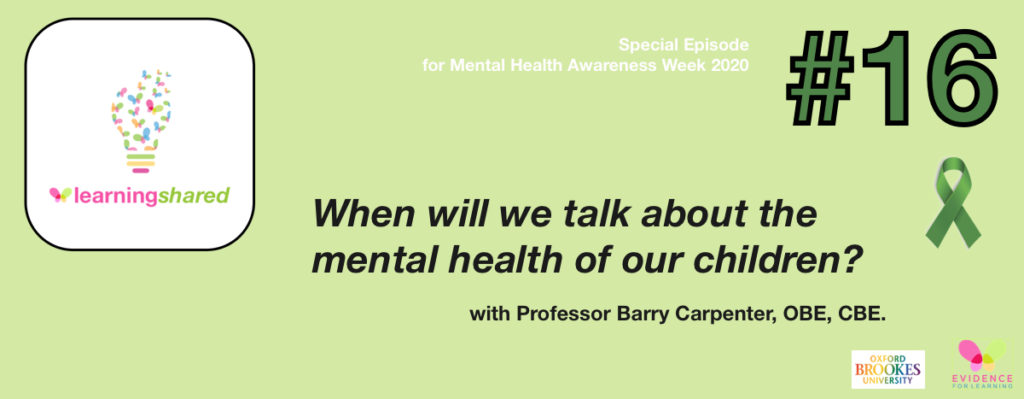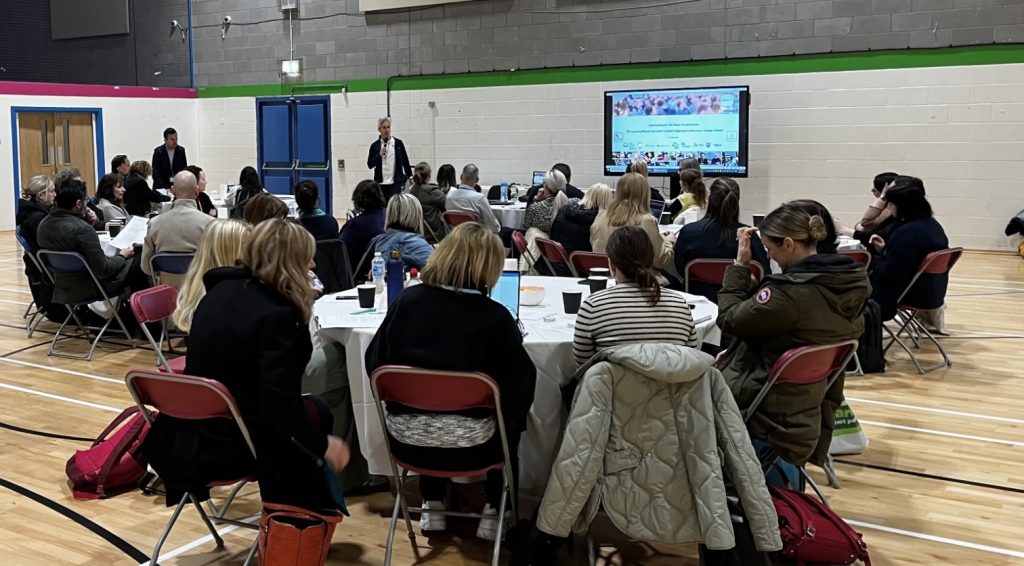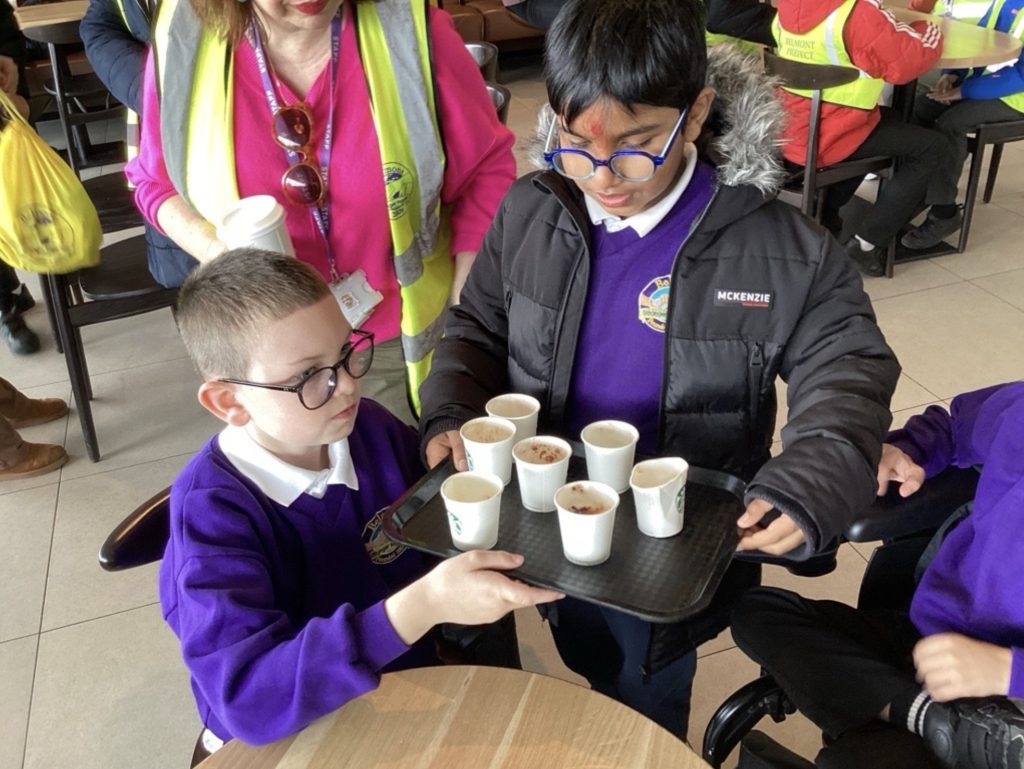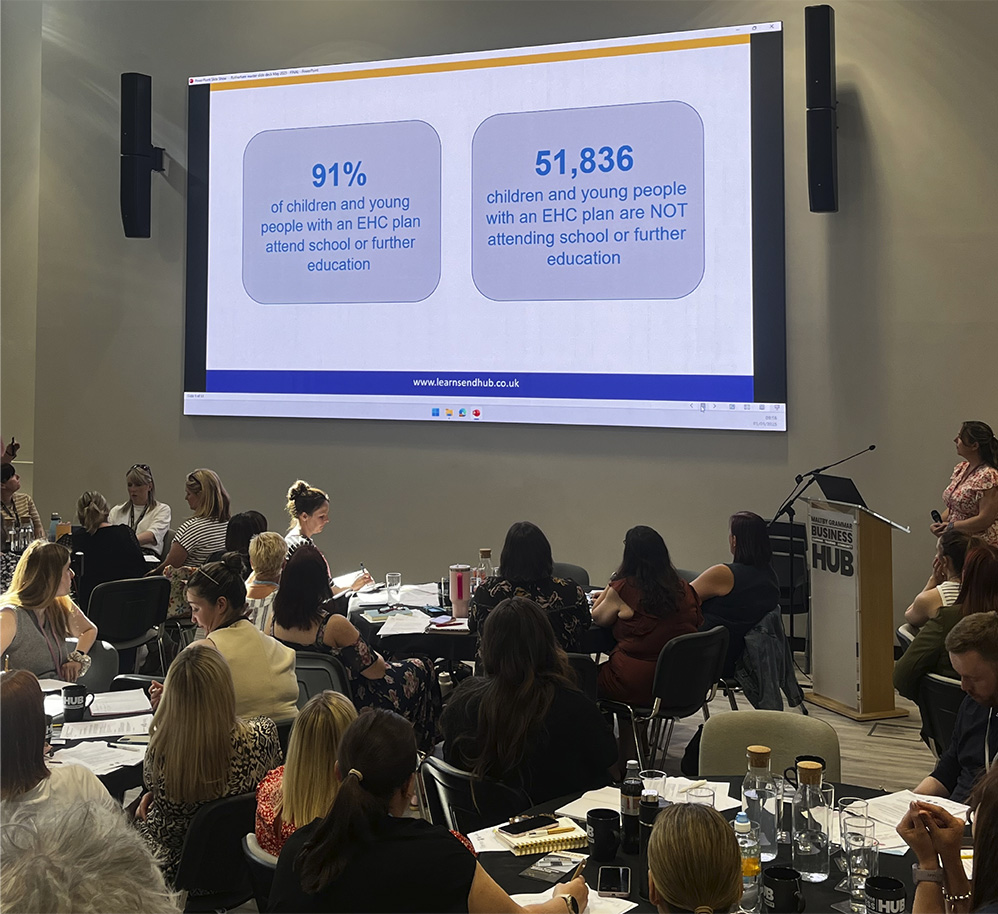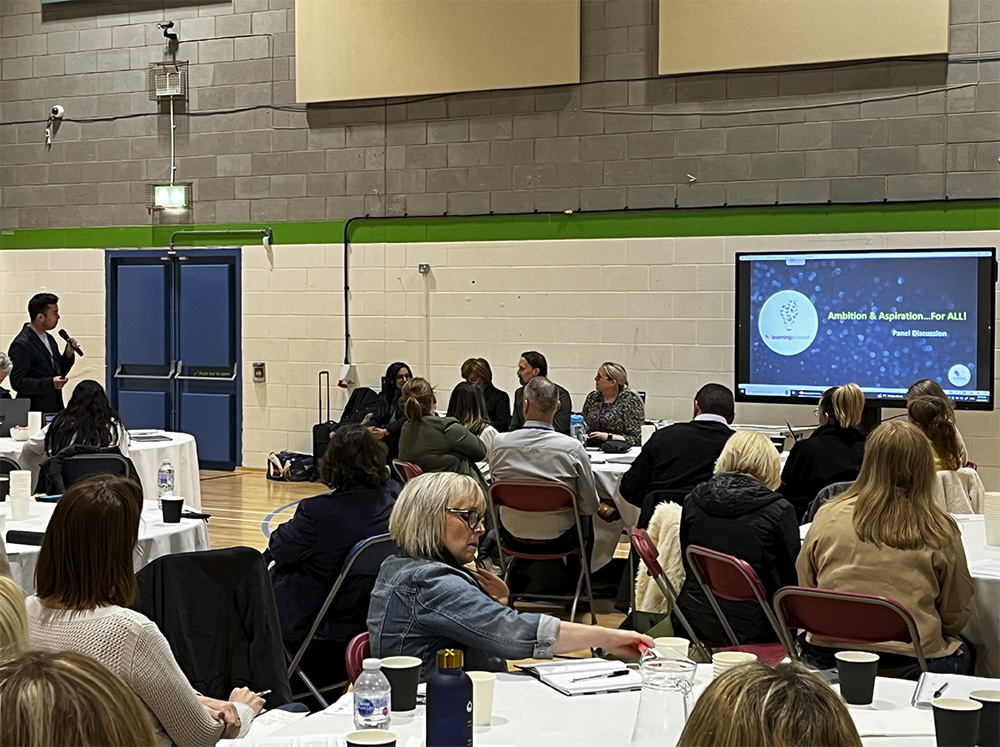In this special episode of LearningShared, recorded for Mental Health Awareness Week, Barry Carpenter CBE (Professor of Mental Health in Education, Oxford Brookes University asks this question and provides a lecture exploring important threads and dynamics in considering the mental health of children and young people.
Kindness is the theme for Mental health Awareness week in 2020.
What do we mean by kindness?
This question deserves an answer at this time of crisis. We have witnessed some incredible acts of kindness in our communities and in society as a whole.
Surely now is the time to re-evaluate what kindness can give to our own sense of well being , as well as in acts of kindness towards others. It is an essential component of the compassion that itself will be so essential to our school communities in the process of reconnection and recovery
A new report published by the Mental Health Foundation is timely and is posted below to support this episode.
You can listen to the audio-only version below:
You can watch and listen to the presentation via the video below:
You can watch and listen to the presentation via the video below:
Join the conversation
We have created private groups in LinkedIn and Facebook where colleagues and peers can discuss and share thoughts, ideas, experiences, resources and learning in relation to education and provision post pandemic. The groups are also an opportunity to connect people and help you to build a network that can support you on your own important journey over the coming months.
Facebook Group: Recovery Curriculum
We’ve set up a private facebook group specifically for The Recovery Curriculum at:
https://www.facebook.com/groups/recoverycurriculum
or search for “recoverycurriculum” in Facebook.
Facebook: EfL SEND Community Group
Join us at:
https://www.facebook.com/groups/eflSENDCommunity/
or search for “eflSENDCommunity” in Facebook.
The purpose of the group is to provide a safe, closed space to seek out and share ideas, experience and resources that can help with any and all aspects of SEND provision. It’s also a community for practitioners and schools that use Evidence for Learning and Insights for Learning to share ideas, resources and support each other in using these apps. This is a peer-moderated and supported group.
Linkedin Group: The Recovery Curriculum
The group is called “A Recovery Curriculum for children & schools post-pandemic” and you can find it at:
